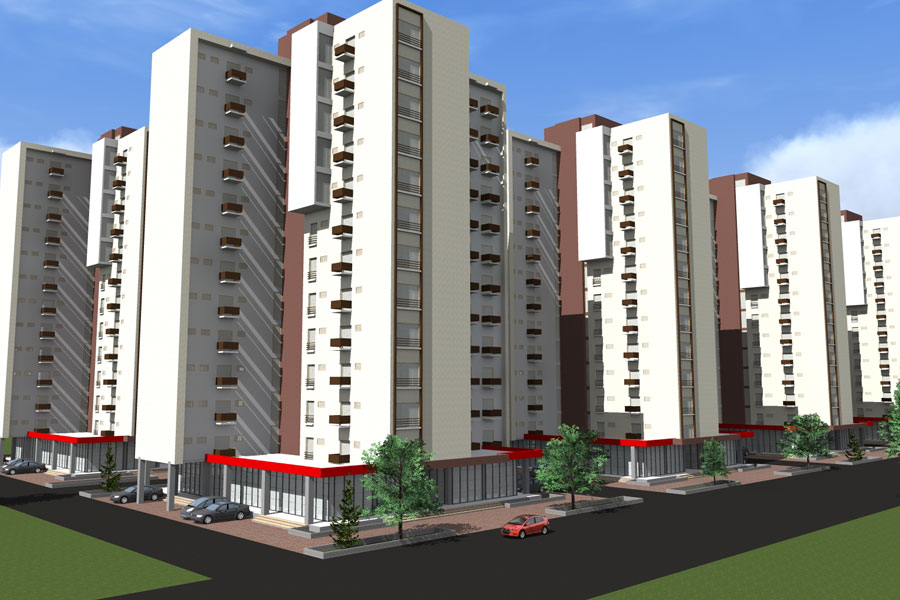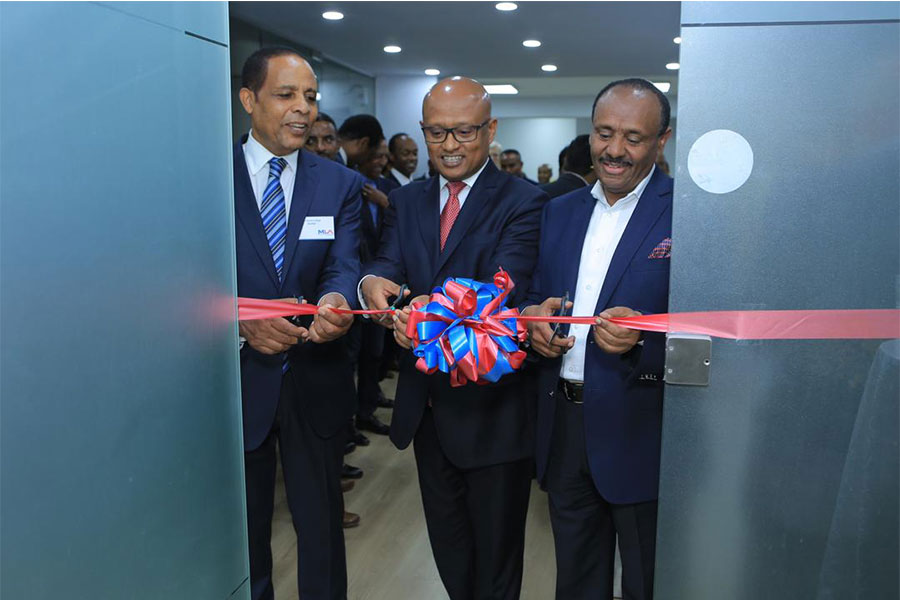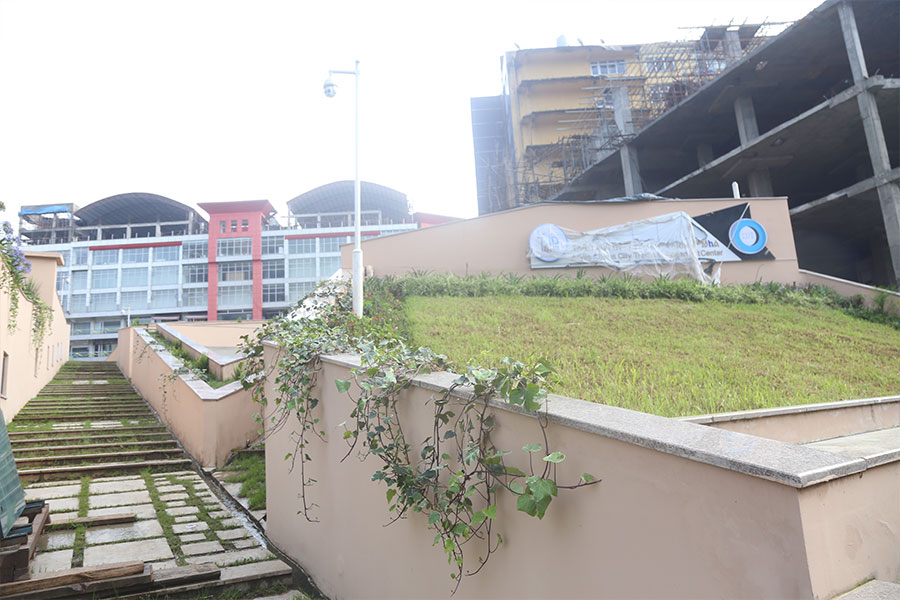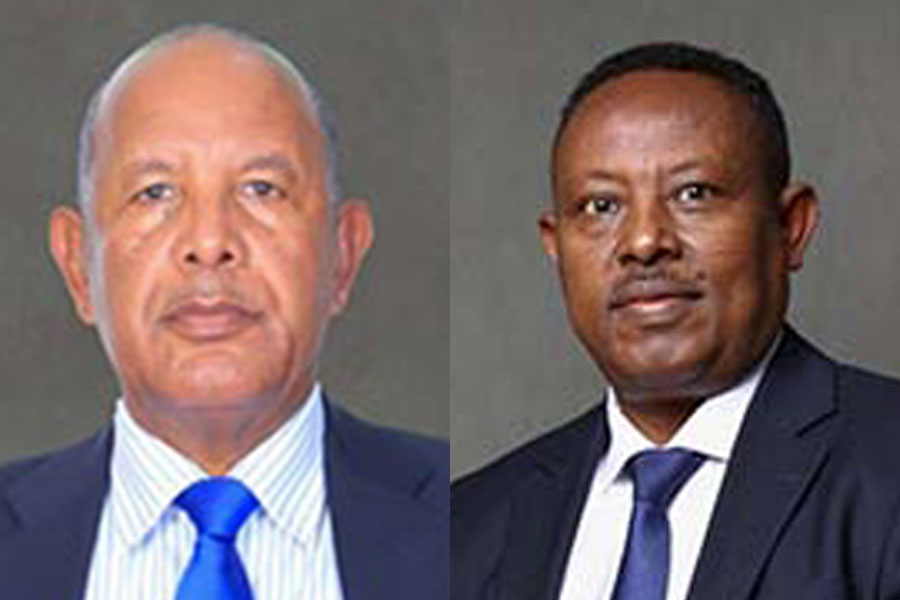
Fortune News | Mar 16,2019
Intergovernmental Authority on Development (IGAD) is inches from commencing construction work for its new headquarters in the capital of Djibouti.
The building design resembles a blossoming flower composed of eight unfolding petals, where the whole flower represents IGAD and its new stage, as the eight petals symbolize the Member States.
Sitting on 12,000 sqm in the Haramous District of Djibouti city, the main building will have three floors and a basement. The project is estimated to cost over 45 million dollars, slated for completion within 19 months.
China Civil Engineering Construction Corporation (CCECC) bagged the contract after winning an international bid. The company has built several large-scale projects in Ethiopia including the Dire Dawa industrial park and the Ethio Djibouti railway.
Samson Bekure, managing director of Saba Engineering Plc and consultant on the project said the new headquarters will be a symbol and a place for realizing IGADs renewed mission of promoting peace, prosperity and regional integration.
Established in 1992, the consulting firm is based in Ethiopia with offices in Tanzania, Rwanda and Uganda. The consulting firm also provided the unique design and is tasked with the supervision of the project.
Samson describes the building as conceived as a citadel composed of eight sectors united around an internal courtyard, introverted yet open to the outside.
"Construction will start soon," he told Fortune.
A three-week interval is expected between IGAD making an advance payment and the contractor breaking ground.
The organization, comprised of eight East African countries, was formed in 1996 to integrate development endeavours across the member countries as a new iteration of its predecessor Intergovernmental Authority on Drought and Development (IGADD), launched a decade prior.
The new IGAD with its restructured mandate was birthed in March of 1996 in Nairobi, Kenya and with Djibouti the small yet geopolitically significant African state serving as its headquarters for the last 27 years.
Rebranding itself in the mid-90s towards a "diplomacy-oriented" attitude, IGAD has made improvements within agriculture as one of its main priorities.
Workneh Gebeyehu (PhD), former Minister of Foreign Affairs and Minister of Transport of Ethiopia, has served as executive secretary of the institution for the last four years.
In his latest statement in February, Workneh indicated that political situations such as the Ethiopia-Sudan Border Dispute, the war in northern Ethiopia, the political transition in Sudan and instability in Somalia and South Sudan required the organization's attention in the last few years.
With all of the member states of the intergovernmental body having spurts of violent conflicts of differing degrees in the period since its establishment many insiders of the political arena consider IGAD's results as less than satisfactory.
Ethiopia alone experienced two extremely violent conflicts in the period. The two-year war with Eritrea which claimed the lives of 100,000 people and the recently ended two-year conflict between the federal government and the TPLF forces claimed to have had more catastrophic results.
A research paper by Abdinasir Roble Hassan submitted to the University of Nairobi analyzing the effectiveness of IGAD in promoting regional diplomacy in 2017 indicated that initiatives of the organization are undermined by the degradation of the environment leading to scarcity of resources that mount to intra-communal conflicts and poor economic development of the countries.
The paper cited the lack of a regional power and political will, rivalry amongst member states and regional instability to have unsated IGAD's effectiveness.
PUBLISHED ON
Apr 08,2023 [ VOL
24 , NO
1197]

Fortune News | Mar 16,2019

Fortune News | May 05,2020

Fortune News | Feb 23,2019

Fortune News | Mar 11,2023

Featured | Sep 10,2023

Fortune News | Aug 02,2025

My Opinion | Aug 05,2023

Advertorials | Aug 02,2024

Fortune News | Jul 18,2021

Commentaries | Oct 03,2020

Dec 22 , 2024 . By TIZITA SHEWAFERAW
Charged with transforming colossal state-owned enterprises into modern and competitiv...

Aug 18 , 2024 . By AKSAH ITALO
Although predictable Yonas Zerihun's job in the ride-hailing service is not immune to...

Jul 28 , 2024 . By TIZITA SHEWAFERAW
Unhabitual, perhaps too many, Samuel Gebreyohannes, 38, used to occasionally enjoy a couple of beers at breakfast. However, he recently swit...

Jul 13 , 2024 . By AKSAH ITALO
Investors who rely on tractors, trucks, and field vehicles for commuting, transporting commodities, and f...

Oct 25 , 2025
The regulatory machinery is on overdrive. In only two years, no fewer than 35 new pro...

Oct 18 , 2025
The political establishment, notably the ruling party and its top brass, has become p...

Oct 11 , 2025
Ladislas Farago, a roving Associated Press (AP) correspondent, arrived in Ethiopia in...

Oct 4 , 2025
Eyob Tekalegn (PhD) had been in the Governor's chair for only weeks when, on Septembe...